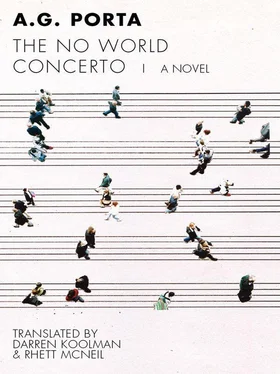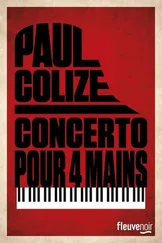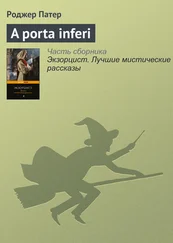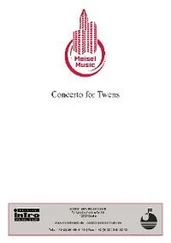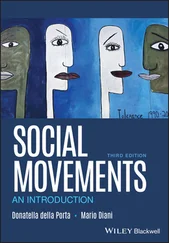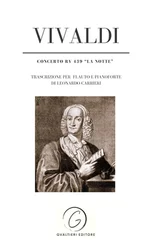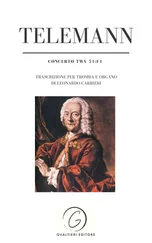A. G. Porta
No World Concerto
Translating The No World Concerto was a difficult and pleasurable experience, much of the pleasure deriving from the difficulty, which always holds a fascination for those among us who enjoy reading books that not only move us but that, according to Blake, “rouze the faculties to act.” An ambitious novelist, A. G. Porta is not content to take the approach of many contemporary writers who presume to subvert the literary tradition by ignoring it. Take his prize-winning debut, Consejos de un discípulo de Morrison a un fanático de Joyce (Advice from a Morrison Disciple to a Joycean Fanatic, 1984), which he wrote in collaboration with his friend, Roberto Bolaño: a highly ambitious, playfully irreverent novel about two bank-robbing lovers, Angel and Ana, who rebel against their parents and society by trying to steal enough money to realize their dream of starting a new life in Paris. Angel has a penchant for poetry, Ana for psychopathy. Angel wants to write a great novel about his moony protagonist, Dedalus, Ana wants to torture and murder as many people as possible. Both fancy themselves artists competing with rival criminals who are stealing all the headlines. Neither truly believes their personal ambitions or plan to escape to Paris will ever come to fruition. Despite the novel taking a decade to write, Porta and Bolaño were the ones who stole the headlines when they won the Ámbito Literario Prize in 1984, with many critics predicting a great follow-up from both writers. But whereas Bolaño quickly responded with a solo effort, Monsieur Pain , Porta entered a literary silence that lasted almost fifteen years.
During this time, Porta was earning his living as an editor of educational textbooks, spending much of his leisure time, according to Bolaño, obsessing over Joyce. Bolaño later joked that he remembered him “[writing or collecting] random sentences from Ulysses with which he assembled poems that he called readymades, à la Duchamp. Some were very good.” Although Porta had seriously considered giving up fiction writing for good, he clearly hadn’t stopped writing, because he eventually broke his long silence with three books in relatively quick succession: Braudel por Braudel (Braudel on Braudel, 1999), El peso del aire (The Weight of the Air, 2001), and Singapur (Singapore, 2003), all of which were applauded by the majority of critics and ignored in equal measure by the public.
His next effort, Concierto del No Mundo ( The No World Concerto , 2006), features some of the characters from his previous three novels. But, besides retaining the same beguilingly simple prose style and metatextual construction, it is markedly more ambitious than any of his previous works. Ostensibly the story of an old screenwriter’s struggle to finish his script, and his relationship with a former student — a female piano prodigy referred to only as “the girl”—who is similarly struggling to write her own novel, it is a bewildering superposition of tales within tales that often blend seamlessly into one another, and at many times confound readers’ attempts to determine whether it is Porta, the screenwriter, or the girl they’re reading at any given moment. As with his first novel, the book is haunted by the ghost of Joyce, and again like that novel, there is the folie à deux relationship of two ambitious characters intent on escaping their situation. But whereas the Porta-Bolaño world is one of violence and sweaty-balled erudition, entering the No World is like entering an M. C. Escher lithograph. Added to this difficulty is the author’s pervasive use of epithets instead of proper names for designating characters, cities, historical figures, books, music, etc. Paris, for example, is called “the neighboring country’s capital”; the composer, Schoenberg, is referred to as “the father of twelve-tone composition”; and Méliès, the film director, may or may not be the “the inventor of the cinematic spectacle” who’s buried in a “famous” cemetery Porta doesn’t name.
Besides the many other cinematic, musical, and philosophical allusions in the book, what most concerns the characters — and the author through his characters — is literature. Both the screenwriter and the girl are obsessed by great writers like Shakespeare, Cervantes, Joyce, and Proust, among others, although Porta, of course, refuses to name them, choosing instead to refer to Joyce, for example, by the unwieldy epithet, “The author that revolutionized twentieth-century literature.” Such evasive insistence could be a playful prank to keep the reader guessing, or it could be the author’s indirect way of contending with these literary giants, as if not naming them might be a kind of desacralization.
All in all, Porta’s approach is undoubtedly risky, but he’s not so niggardly as to refuse to supply the reader with clues. In a sense, therefore, the reader becomes a kind of detective, and feels — as the screenwriter feels when writing his script — that if she follows all the clues, she’ll be able to figure out the mystery behind this postmodern mystery play (or screenplay), a process the screenwriter compares with reconstructing the scene of a crime. Thus, the screenwriter’s doubts at the beginning of the novel mirror the reader’s. Each must navigate through this shadowy otherworld until all — or not quite all — is finally revealed.
Doubts, confusions, are indeed what Porta himself had experienced while writing the novel, for it was only after five complete revisions that it arrived at its present form. Even when he won the prestigious Café Gijón Prize in 2005, the novel wasn’t in its final version, still bearing the early title Cazadores de los No Mundos (Seekers of No Worlds), and having an old guitarist as its protagonist instead of a screenwriter. Nonetheless, one gets the impression that even if he’d been cast as a biochemist or a ballet dancer, his obsessions would still have been with writers — as they would for the girl, who sees writing not only as a means of escaping into a No World but of liberation from her enthrallment to the piano on which her mother forces her to practice. The definitive title of this novel may only be incidental — whether or not it’s “just” the tale of an uninspired screenwriter conceived structurally as a bastardization of Wittgenstein and Schoenberg, it’s certainly not a musical concerto. And yet, it is undoubtedly a work of art. So, in calling his novel The No World Concerto , perhaps A. G. Porta was only reinforcing what Walter Pater famously said about all such endeavors: that they constantly aspire to the condition of music.
I’d like to thank the author, A. G. Porta, for writing this wonderful novel which was such a delight to translate; my fellow-translator, Rhett McNeil, for beginning a process that it was my privilege to complete; John O’Brien, for entrusting me with the task of doing so; and Jeremy M. Davies and the staff at Dalkey Archive Press, for helping so greatly to improve what I believed only an adequate translation.
Darren Koolman, 2012
To Joel, for his No World
1. The world is all that is the case.
5.123 If a god creates a world in which certain propositions are true, then by that very act he also creates a world in which all the propositions that follow from them come true.
LUDWIG WITTGENSTEIN, Tractatus Logico-Philosophicus
55. So is the hypothesis possible, that all the things around us don’t exist? Would that not be like the hypothesis of our having miscalculated in all our calculations?
Читать дальше
